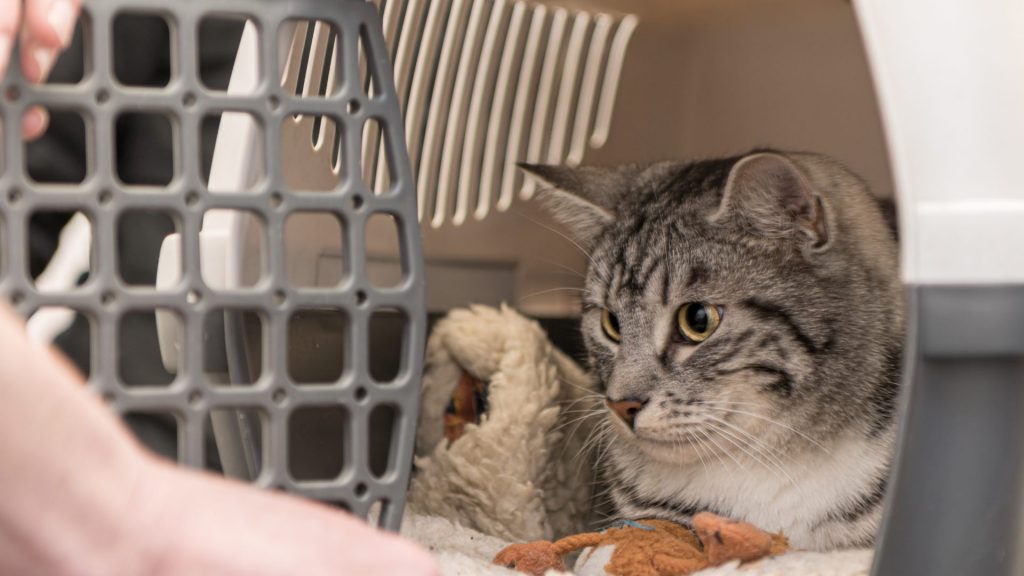Turkey Pet Import Rules and Requirements
Planning pet transport to Turkey requires several weeks (and maybe months) of planning, but with plenty of research and assistance, it’s possible to carry out safely and efficiently.
To start the process of bringing a dog to Turkey, make sure your vet is approved by the government authority in your country of origin. For example, if you’re starting your journey in the United States your vet should be USDA accredited. From here, your pet needs to be microchipped (if not already) and then a rabies vaccine and titer test must be administered.
Standard vaccines are also required, as is an official Health Certificate. When bringing pets to Turkey you’ll also need to prepare your pet for travel in general — primarily this means spending the time to crate train your dog or cat so that the time spent in flight will feel as normal and uneventful as possible for them.

Microchip and Rabies Titer Test
Before embarking on pet transport to Turkey, ensure your pet is identified with a compliant microchip. After your pet receives a rabies vaccination, a Rabies Antibody Titer Test is required to confirm adequate rabies antibody levels. Make sure to use a government-approved facility for testing, and achieve a result of at least 0.5 IU/ml.
Vaccination Requirements
Dogs need to be vaccinated against Distemper, Hepatitis, Leptospirosis, Parainfluenza, Parvovirus (DHLPP), Bordetella, and Rabies. Cats require vaccinations for Feline Viral Rhinotracheitis, Calicivirus, Panleukopenia (FVRCP), and Rabies. Vaccinations should be administered at least 4 weeks before arrival and no less than 2 weeks before export.
Import Permit and Health Certificate
Your ASIAPATA specialist will help you obtain the necessary import permit for your pet’s travel to Turkey. Additionally, an international health certificate (APHIS 7001) must be completed by your veterinarian within 10 days of departure.

Preparing Your Pet for Travel
Crate training your dog or cat is essential for ensuring their comfort during the flight. Acclimating your pet to their crate will help them feel more at ease during the journey.
Customs Clearance Documents
To clear customs in Turkey, you’ll need to provide the following documents:
- Copy of the Pet Owner’s Passport
- Original Rabies Vaccine Certificate
- Original APHIS form 7001 with USDA endorsement
- Original Import Permit
At ASIAPATA, our team of specialists is dedicated to ensuring your pet’s safe and smooth journey to Turkey. With our expert guidance, your pet’s relocation experience will be as stress-free as possible.

Banned Breeds
Turkey does not permit the import of the following breeds or their crosses: Pit Bull Terriers, Japanese Tosa, American Pit Bull Terrier, Bull Terrier, American Staffordshire Terrier, Dogo Argentino, Fila Brasileiro, Rottweiller, Staffordshire Bull Terrier, Neopolitan Mastiff, Spanish Mastiff, Dogue de Bordeux, Roman Fighting Dog, Bandog Tosa Inu, Mastiff, Tibetan Mastiff or similar, mongrel breeds.
Need More Advice?
To the best of our ability, we ensure that recommendations given on ASIAPATA reflect the current regulations. We cannot predict how a given country may enforce these regulations. Noncompliance may result in the need to make arrangements to put your pet into quarantine at your expense, return your pet to the country of origin, or euthanize your pet. We suggest that you minimize the disruptions that may occur by following the rules of the country you are visiting.
Read more at
- Vaccination schedule for international pet travel to France
- Singapore International Pet Shipping 2023
- Vận chuyển thú cưng quốc tế đến Ai Cập














